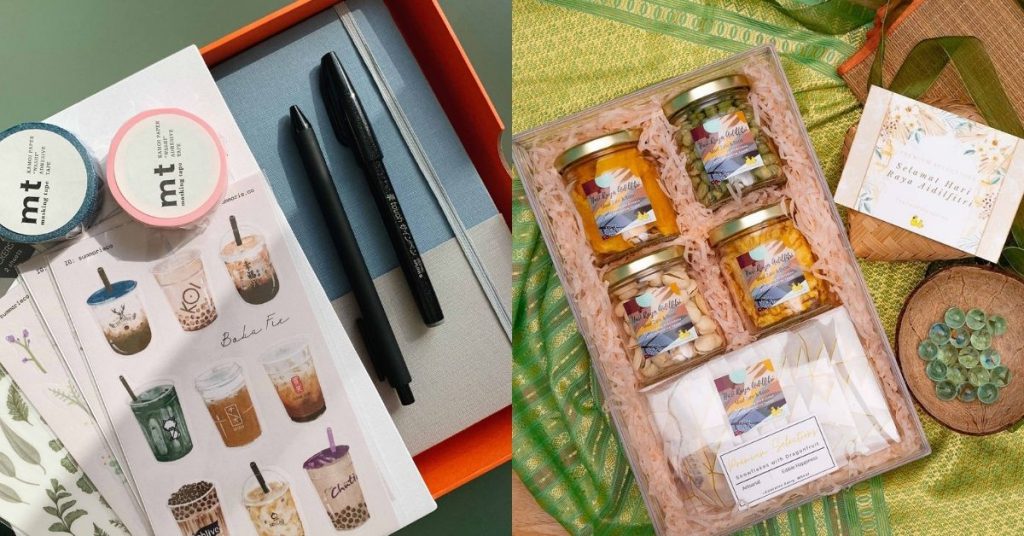Lay-offs, pay cuts, and overall boredom have turned many Malaysians into entrepreneurs, selling handmade and homemade products on Instagram, Shopee, Kravve, and other platforms.
On the consumer’s end, we’re spoilt for choice. If I wanted dainty earrings, I’ve got Cindertoella or Pebbles + Herbs to choose from. For houseplants, there are over a dozen brands to single out.
This boom has in turn, birthed online marketplaces to help inexperienced sellers in acquiring customers and heighten their discoverability online.
One of them is Poptron, a portmanteau of the words POP-ups, TRust, and ONline, that also uses its platform to paint the stories of sellers behind their products. This is meant to imitate the experience of browsing in a bazaar and interacting with the sellers behind the booths—an experience suspended by the lockdown.
And all this was thanks to a pair of leather shoes.
They Were His Glass Slipper
It began when founder Brian Lowe came across a pair of leather shoes while browsing a pop-up bazaar in Publika, KL back in 2019. “I remembered clearly that it was one of the finest Italian style shoes I’ve ever seen with really impeccable craftsmanship and detailing,” Brian told Vulcan Post.
The humble salesperson was also the owner and shoemaker behind the brand, and he carefully explained to Brian his creation in detail, the process of making it, the types of leathers used, etc.
Brian reminisced, “It was heartwarming to hear his story and understand the true passion and pride that goes into what he was creating. I tried on the shoes with much anticipation, and as they say… it fit me like a glove!”
With a price tag of RM499, Brian was sold, but hit with a problem—he didn’t have enough cash on hand, nor did the seller offer cashless payment options. This was pre-pandemic and a time where small-time sellers at bazaars weren’t equipped to have such systems.
Brian decided he’d finally make the purchase via the seller’s website. As a few weeks had passed, he was hit with another problem, unable to recall the brand’s name. He searched high and low on social media and put in relevant keywords on Google, to no avail.
“This experience triggered the idea to address a fundamental problem that while small businesses today may have an online presence, it can prove challenging to find or drive traffic to one’s platform unless they were suggested by a discovery algorithm, or if we already knew the brand’s name,” shared Brian, who launched the platform in September 2020.
So, Poptron solves this by listing microbrands from Instagram that’ve either been scouted by the team or recommended by their partnered sellers to ensure they share a like-mindedness.
Customer acquisition is also secured, as the brand’s existing followers are onboarded to Poptron as well. This builds awareness for Poptron’s site, while also opening customers up to a new marketplace with products and brands they might be interested in.
Hence, it lowers a brand’s acquisition costs—which is otherwise 40% of their revenue to run social media advertising—while driving their business up, according to Brian.
We Grow Together
While browsing, I noticed that many brands on Poptron were environmentally conscious and all sold pretty high-quality products. It was part of Brian’s goal, to inspire a sustainable lifestyle that would amplify a positive impact on society and future generations to come.
Though the platform emphasises its support towards microbrands, Poptron isn’t going to kick out brands that grow bigger and no longer need it in years to come.
This is because other microsellers would still benefit from the traffic a bigger brand brings in, and every new product added on the site will find its own niche.
Sellers on Poptron are screened and required to undergo a vetting process to ensure legitimacy and trustworthiness. Some of the basic criteria sellers need to fulfil are:
- Having a registered business entity and an Instagram business profile;
- Owning their own products/brand;
- Being market-ready with a transparent return policy;
- Being shippable via courier services and on-demand delivery.
The founder also admitted that there have been times where sellers were turned away despite having a large following because they were drop-shippers or didn’t have a business entity.
A Free Market
For now, Poptron doesn’t charge their partnered brands any commission or transaction fees and only passes on incurred charges from payment processing and shipping partners.
The business is being driven by their US$1 million seed funding from a few months ago and they’re pursuing more investments to grow the site regionally.
“Eventually, we will introduce a competitively priced monthly subscription fee to sell on Poptron,” Brian shared.
To date, Poptron hosts over 100 homegrown brands with more than 1,400 different products. In the next 2 years, Brian plans to scale its presence to Singapore, Indonesia, the Philippines, and Thailand.
Previously, Brian also said that Poptron aims to capture US$1.6 billion of the microbrand market share with 600,000 microbrands generating their global revenue in 2025.
Bringing it back to the nearer future, he wants to host a Poptron Festival once it’s safe to do so. This is to engage with their community of users and merchants in a festival setting consisting of music, visual arts, film, F&B, and of course, pop-up bazaars.
Featured Image Credit: Brian Lowe, founder of Poptron
